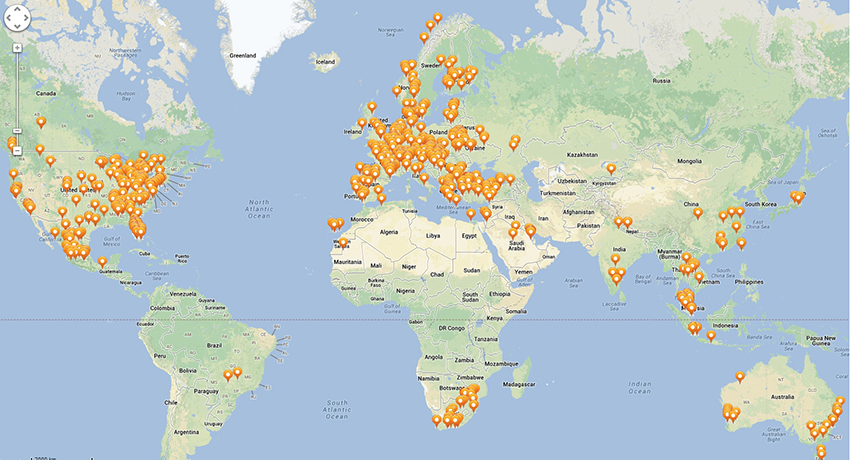Brigham and Women’s Launches the 2013 Bright Futures Competition

This map shows where the votes are coming in from all over the world. Map provided by Brigham and Women’s Hospital.
Brigham and Women’s Hospital (BWH) has launched the 2013 Bright Futures Prize competition, which is a way for “the people” to select which group of doctors should receive the $100,000 prize to help fund their project. Usually, these kinds of decisions are made by government agencies, organizations, and roundtable committees. This contest lets the decision be made by the public.
The polls opened in late September and will remain open until Nov. 21 when the winner will be announced at BWH’s second annual Research Day. The contest is open to voting throughout the world. You can see where people are voting from on the heat map above.
The finalists were determined by a rigorous two-step, peer-review process. The three finalists have come up with innovative solutions to problems that are currently occurring in medicine. Watch the short videos below, and then vote here:
Dr. Utkan Demirci—Taking Control of Epilepsy
- Developing a portable device to measure anti-seizure drugs in the blood. His device will allow patients and their caregivers to manage the treatment of epilepsy anywhere.
Dr. Bohdan Pomahac and Dr. Jeffrey Karp—Stuck on You
- Developing an adhesive made up of tiny shaping changing needles, hoping to create the next generation of wound care while minimized scarring.
Dr. Dan Solomon and Dr. Joel Weissman—Power to the Patient
- Developing an online patient community called “B-Hope” to make research studies more accessible to patients who want to be more involved or take part in a clinical study or drug trial.
Last year’s Bright Futures Prize winner, Dr. Robert Green, won for his BabySeq project. Now, just one year later, Dr. Green’s project has progressed, and was recently awarded a $6 million grant from the NIH. The grant will fund a five-year study of 480 newborns’ DNA to measure how import genome sequencing can be. According to BWH reps, this is a prime example of how the competition has paved the way for innovative research.

